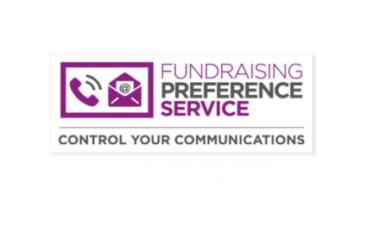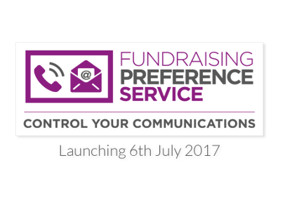Lord Grade, chair of the Fundraising Regulator, praises the sector's positive response to the Fundraising Preference Service, and clarifies issues raised by his interview in the Daily Telegraph over the weekend.
Any new idea can induce caution, even fear. The launch of the Fundraising Preference Service (FPS) was no different. From speaking to charities, many expressed concern that it would damage fundraising. Three months since its launch, I'm pleased to say that charities have been efficient, effective and understanding in their FPS adoption.
There was real concern that individuals would have one negative fundraising experience and then block all communications from all charities. This anxiety was linked to the original 'Big Red Button' idea, whereby individuals could block all charity communications at a stroke. Through consultation with 900 charity workers, we decided that this approach would be counter-intuitive.
The system developed has been proven a success. It enables individuals to block direct marketing communications from named charities, with the service available online or via phone. Already, we have registered 9,900 suppression requests, made by 3,800 individual members of the public. This shows real demand for the service that will grow as awareness increases.
At first glance, these figures could be interpreted as a restriction on fundraising. However this is unlikely to be the case. Somebody who goes out of their way to block communication is unlikely to want to be a donor. Ultimately, it should help charities focus their resource on people who want to be contacted and are open to giving.
There have also been 2,000 suppressions made by individuals acting on behalf of family or friends. This means that vulnerable people, who may not be computer literate, are better protected. We have worked closely with charities such as Alzheimer’s Society and Age UK to ensure that the FPS helps these groups.
Charities have been quick and intelligent in adopting FPS systems. We set a 28-day deadline, after which charities should have removed a FPS complainant from their contact databases. We have yet to see a charity miss the deadline. Failure to suppress would constitute a breach of Section 11 of the Data Protection Act.
Despite the headlines...
Separately, there is the question around unaddressed mail, a point which was picked up by the Daily Telegraph on 11th November. To be clear, we are not looking to stop charities from issuing unaddressed mail and we do not view it as a priority for the Regulator. The Royal Mail already has a service which allows someone to opt out of receiving unaddressed mail if they wish to.
Nor will we ‘ban’ charities from sending out ‘enclosures’ – that is, free gifts. However, we will discuss with charities how they justify their decisions to send such gifts and answer questions from the public as to why funds are being spent like this, since our Complaints Report highlighted it as an area of concern. There is no ‘biro ban’ in the works, despite the headlines.
As we have long said, FPS is not a silver bullet. It will help charities reach those who want to hear from them, and give greater control to those members of the public who do not want further contact. More broadly, we firmly believe that it will help rebuild the trusting relationship between charities and the public.
We thank charities for their open-mindedness and quick work in adopting FPS. Already, it's making a great difference.
Related Articles












